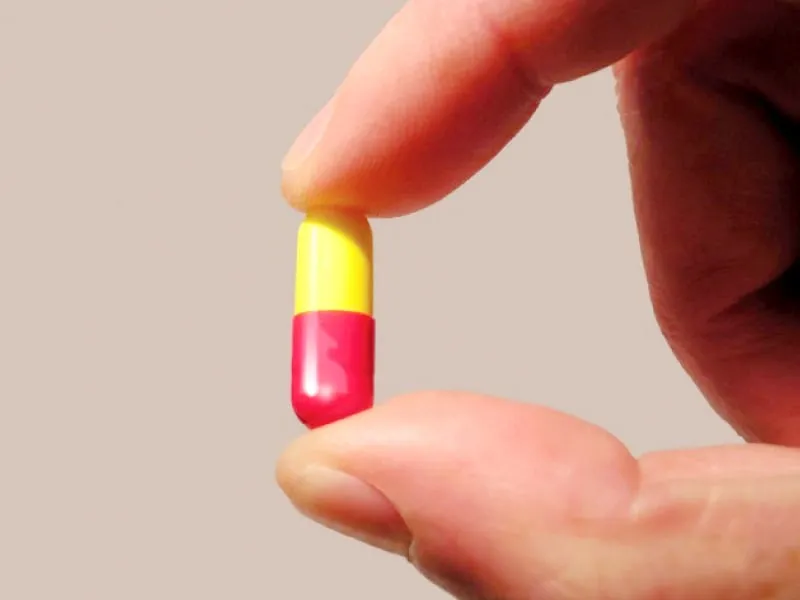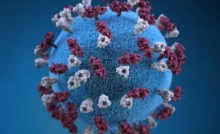Ebola, a deadly viral disease first identified in 1976, has long been one of the most feared pathogens due to its high fatality rate and devastating impact on affected communities. Originating from bats and transmitted through direct contact with bodily fluids, Ebola causes severe bleeding, organ failure, and often death. Historically, outbreaks have been concentrated in Sub-Saharan Africa, where limited resources and challenging healthcare infrastructure make controlling the virus extremely difficult.
For decades, scientists have struggled to develop effective and practical treatments for Ebola. The sporadic nature of Ebola outbreaks and limited financial incentives have hindered clinical trials and research. However, recent advances suggest a groundbreaking solution may be on the horizon. A new study indicates that Ebola could potentially be cured with a simple pill, based on an experimental treatment tested on monkeys.
The Need for Better Ebola Treatments
Ebola outbreaks, while sporadic, cause widespread panic and strain healthcare systems in affected regions. The most recent significant outbreaks have highlighted the urgent need for accessible, cost-effective treatments. In 2019, the first Ebola vaccine received wide approval, marking significant progress. However, the vaccine’s reach and effectiveness are limited, and existing treatments, including monoclonal antibody therapies like Inmazeb and Ebanga, are expensive, require cold storage, and are difficult to administer in resource-poor settings.
Thomas Geisbert, a virologist at The University of Texas Medical Branch at Galveston, emphasized the need for practical solutions: “We’re really trying to come up with something that is more practical, easier to use, and could be used to help prevent, control, and contain outbreaks,” Geisbert stated. His team’s recent study, published in Science Advances, explores this quest for a more feasible Ebola treatment.
The Experimental Pill: Obeldesivir
Geisbert and his colleagues tested an antiviral pill called Obeldesivir, the oral form of intravenous Remdesivir, initially developed for COVID-19 treatment. Obeldesivir functions as a polymerase inhibitor, blocking an enzyme essential for viral replication.
For the study, researchers infected rhesus and cynomolgus macaques with a high dose of the Ebola virus (Makona variant). The choice of these monkey species is crucial since rhesus macaques closely resemble humans in terms of immune response and disease progression.
One day after infection, ten monkeys received a daily Obeldesivir pill for ten consecutive days. Three control monkeys received no treatment and, as expected, succumbed to the disease.
Promising Results from the Experiment
The results were remarkable. All rhesus macaques treated with Obeldesivir survived the infection without significant complications. Among cynomolgus macaques, the pill protected 80% of the subjects. The drug effectively eliminated the Ebola virus from the monkeys’ bloodstreams, aided their immune systems in building antibodies, and prevented organ damage—a hallmark of severe Ebola infections.
Geisbert acknowledged the limited sample size but stressed the study’s scientific robustness. The monkeys received an extraordinarily high virus dose—30,000 times the lethal dose for humans—highlighting Obeldesivir’s impressive efficacy under extreme conditions.
Advantages Over Current Treatments
One of Obeldesivir’s most promising features is its broad-spectrum effectiveness. Unlike existing antibody treatments, which target only the Zaire strain of Ebola, Obeldesivir shows potential against multiple Ebola strains. This versatility could be a game-changer for outbreak management.
Current FDA-approved Ebola treatments, Inmazeb and Ebanga, rely on monoclonal antibodies, which neutralize the virus by blocking cell entry. While effective, these treatments are costly and logistically challenging. They require cold storage, specialized medical staff for administration, and consistent supply chains—barriers that Obeldesivir, as an oral pill, could eliminate.
Gilead Sciences, the pharmaceutical company behind Obeldesivir, is now advancing the drug to Phase 2 trials for the Marburg virus, a close relative of Ebola. These trials will help evaluate the pill’s broader applicability and effectiveness against other filoviruses.
Challenges in Ebola Research and Treatment Development
Ebola’s sporadic and unpredictable outbreak pattern complicates research efforts. Outbreaks often occur in remote, resource-limited areas with inadequate healthcare infrastructure, making large-scale clinical trials difficult. Additionally, financial incentives for pharmaceutical companies to develop Ebola treatments are minimal, as outbreaks are relatively rare and localized, affecting economically disadvantaged regions.
Government funding has been crucial in Ebola research and drug development. Geisbert highlighted the importance of sustained financial support from the U.S. government. Recent funding cuts under the Trump administration raised concerns that progress in Ebola treatment research might slow down, potentially delaying critical advancements.
The high costs of monoclonal antibody treatments are another significant barrier. Inmazeb and Ebanga are effective but expensive, limiting access for communities most affected by Ebola outbreaks. Cold chain storage requirements further complicate distribution in remote areas with limited electricity and infrastructure.
By contrast, Obeldesivir offers several advantages. It is more affordable, does not require cold storage, and can be administered easily as a pill—making it a practical option for outbreak containment in remote regions.
Implications for Future Ebola Outbreaks
If Obeldesivir’s effectiveness is confirmed in human trials, it could revolutionize Ebola treatment. The ability to administer an oral antiviral pill simplifies logistics and enhances rapid response capabilities during outbreaks. Quick and easy administration can help contain outbreaks early, reduce transmission, and save lives.
An oral treatment could also facilitate preventive measures. Health workers and at-risk populations in Ebola hotspots could receive prophylactic doses during outbreaks, reducing the risk of infection.
The research underscores the importance of global collaboration in addressing infectious diseases. International support and funding are critical to advancing treatments like Obeldesivir, ensuring equitable access for the communities that need them most.
The Broader Context of Viral Outbreaks
The COVID-19 pandemic highlighted the need for rapid, effective antiviral treatments. The development of Remdesivir and its derivatives, like Obeldesivir, showcases how scientific progress in one area can benefit other disease treatments. As zoonotic viruses like Ebola and Marburg continue to pose threats, the importance of ongoing research and drug development cannot be overstated.
Global health agencies, governments, and pharmaceutical companies must collaborate to ensure that treatments like Obeldesivir are not only developed but also accessible to the populations at risk. Strengthening healthcare infrastructure in Ebola-prone areas, enhancing surveillance, and ensuring rapid response capabilities are essential components of outbreak preparedness.
The discovery that Ebola could potentially be cured with a simple pill like Obeldesivir marks a significant milestone in the fight against this deadly virus. The promising results from monkey experiments offer hope for a future where Ebola outbreaks can be controlled more effectively, with greater accessibility and affordability of treatment.
While more research, including human clinical trials, is needed to confirm Obeldesivir’s safety and efficacy, this study represents a crucial step toward practical and life-saving Ebola treatments. The fight against Ebola is far from over, but with innovations like Obeldesivir, the global community moves closer to ending the Ebola threat once and for all.









